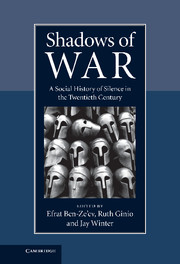Book contents
- Frontmatter
- Contents
- Notes on contributors
- Preface and acknowledgments
- Part I Framing the problem: Multi-disciplinary approaches
- Part II Europe
- Part III Africa
- Part IV The Middle East
- 9 Facing history: Denial and the Turkish national security concept
- 10 Imposed silences and self-censorship: Palmach soldiers remember 1948
- 11 Forgetting the Lebanon War? On silence, denial, and the selective remembrance of the “First” Lebanon war
- Index
- References
10 - Imposed silences and self-censorship: Palmach soldiers remember 1948
Published online by Cambridge University Press: 04 May 2010
- Frontmatter
- Contents
- Notes on contributors
- Preface and acknowledgments
- Part I Framing the problem: Multi-disciplinary approaches
- Part II Europe
- Part III Africa
- Part IV The Middle East
- 9 Facing history: Denial and the Turkish national security concept
- 10 Imposed silences and self-censorship: Palmach soldiers remember 1948
- 11 Forgetting the Lebanon War? On silence, denial, and the selective remembrance of the “First” Lebanon war
- Index
- References
Summary
Among the things they carried, to use Tim O'Brien's phrase, was silence. The soldiers who fought in Israel's war of independence were no different from other twentieth-century soldiers like O'Brien. They were young, they were inexperienced, and they saw and did things they did not refer to in conversation, in writing, or in public ceremonies and commemorative events. The subject of this chapter is soldiers' silences, and the ways in which they are tacitly agreed and maintained over the years. I also will explore the ways in which the veil of silence some soldiers drew over their military service in the 1948 war started to fray, and then fall away as these men became old soldiers, and for a host of reasons, took another look at what they had done and what had happened to them long before.
Israeli's soldiers' tales of the 1948 war bore a particular imprint related to the fact that they were on the victorious side of their country's war of independence. The heroic baggage of elite troops, in this case, the Palmach, was greater still, since these young commandos embodied the tough, hard-working and unsentimental image of the new Israeli state. The bonds they formed lasted a lifetime, and so did the tales they told about their war. Suffice it to say that the sufferings of the Arab population, expelled en masse from their towns and villages in the course of the fighting in 1948, was not at the centre of their field of vision.
- Type
- Chapter
- Information
- Shadows of WarA Social History of Silence in the Twentieth Century, pp. 181 - 196Publisher: Cambridge University PressPrint publication year: 2010
References
- 4
- Cited by



